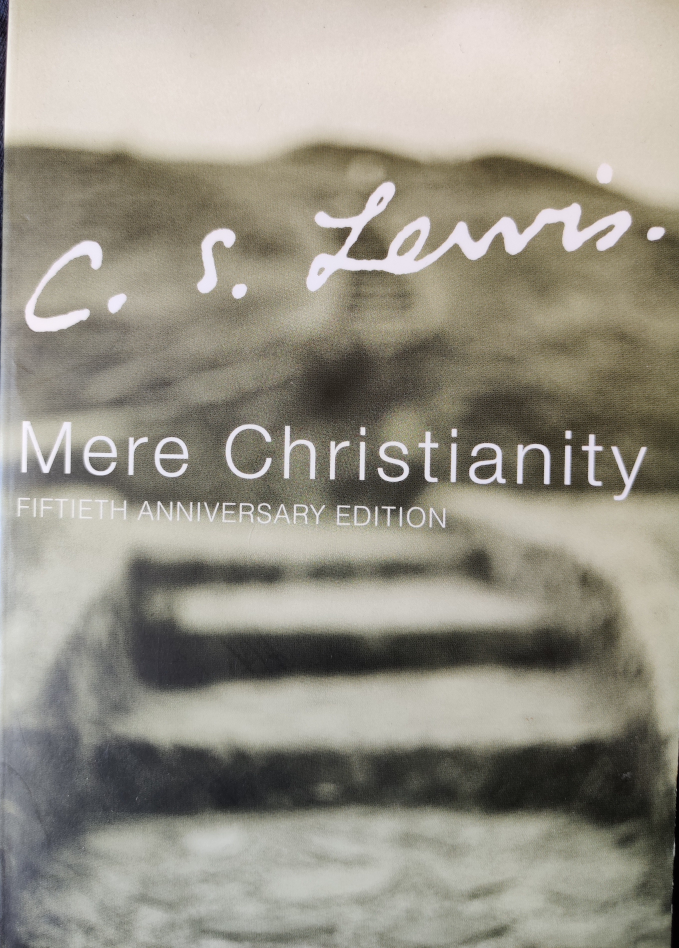Pentecost and Perspective

29th May 2020
Pentecost is a time when we celebrate the gift of the Holy spirit. But who is the gift for? Who is the real beneficiary, self, others or both? I grew up in a church where spiritual gifts such as speaking in tongues and words of knowledge were not openly evident or discussed as such.
Churches where this happened up-front were for a different type of person. The supernatural was not, well natural.

It strikes me that we endlessly see things from our own perspective irrespective of who we are.
At housegroup we recently read part of Mat 17 where the disciples suffered failure after being present at the glory of the transfiguration. (Mark 9, Luke 9, 2 Peter 1) Jesus said, ”But this kind does not go out except by prayer and fasting.” (Mat 17:21 or Mark 9:29 if this verse is not included in your version.)
Was this a reminder to the disciples that it is not about us, despite our background and experiences, but rather the Spirit of God at work within us?
So often everything is from our own standpoint. I’m trying to get more confident in using social media so it’s great that a Facebook algorithm automatically described me as, a rising star. Do stars rise, or is the perceived rise in relation to the movement of the Earth we are standing on.
Would we be better to understand the solar system in relation to our Sun and star, or even the Son of God, who was there when the stars were made.
“In the beginning was the Word, and the Word was with God, and the Word was God. He was in the beginning with God. All things came into being through Him, and apart from Him nothing came into being that has come into being. In Him was life, and the life was the Light of men. The Light shines in the darkness, and the darkness did not comprehend it.” (John 1: 1-5)
We need to remember that we had nothing to do with the natural rules of creation although we might investigate them Scientifically. “Where were you when I laid the foundation of the Earth? Tell me if you have understanding, who set the measurements?” (Job 38:4-5)
Many know I have voluntarily surrendered my driving licence for health reasons, twice, despite personal cost. I’m not sure I could live with being responsible for the injury or death of someone through my own selfishness.
Of course accidents happen, but we do need to manage the risk empathetically. Sometimes there are too many unknowns and best guesses, in tension with our self-serving demands and what works for us now.
It’s not always safe to test by trying, even for the cognitive elite, yes them again. They may endeavour to justify themselves with all sorts of personal knowledge to suit their desires, but is this true wisdom? What should we learn from this?
I’m looking forward to the potential of the great British pub opening again. Perhaps after a quick drink the Police will be fine with, “I’m just driving around the block to test whether I’m safe to drive the whole way home.”
Don’t worry, I’m not in the cognitive elite so my opinion can be intellectually disregarded with reason, because it comes from just one individual who has a brain injury and mental health problems.
In reality, I am not driving or even drinking alcohol at the moment.
Is trying things out and experimenting always the right thing to do? Some may argue that the answer is always yes. It’s often how we find things out to improve our reasoning and explore any hypothesis. But how secure are our hypotheses and have we risk assessed danger to others before testing? I like the recent Scottish notion of Test and Protect.

When we look at the cross (Luke 23: 39-43) there were many accusers, including teachers of the law, in the crowd. We all make mistakes irrespective of our status and what we have done. Forgiveness should be accessible for all, including the cognitive elite, because we need to remind ourselves, it’s not about us but about Him.
Of the two thieves next to Jesus it’s the one who put Jesus before himself who’s future was in paradise. Our future hope is in Jesus. Arguing for self by using worldly wisdom on the other side of the cross, did not help.
“A proud man is always looking down on things and people; and, of course, as long as you are looking down, you cannot see something that is above you.” (C.S. Lewis, Mere Christianity)
I have experienced this looking down problem. For me it was practically addressed following an operation on one of my eyes to keep both eyes in sync following my accident. Our vision is better when working together.
There are recent news clips of people in hospital, even people at high risk of serious Covid19 problems, who put others first in jobs that might be considered by some as less skilful, even if they are essential. As well as work on my eyes, I’m also still with the NHS for ear issues.
Listening to, and hearing from God, is crucial. Both body parts are highly valuable together. “For just as we have many members in one body and all the members do not have the same function, so we, who are many, are one body in Christ, and individually members one of another.” (Romans 12 4-5)
Politicians have been constantly asserting that they are following Scientific advice. We are still finding out about the virus and advice is therefore changing. Our understanding continually improves based on further experience, whether in the UK or beyond. A bit like growth in our personal faith.
For me Science is about asking questions, proposing and very carefully testing hypotheses which may or may not be accurate until we know more. Scientific knowledge is not a certainty, it offers what we know now until we learn more.
Our scientific understanding is always expanding, particularly quickly when we encounter something new. This is quite normal, Science is an ongoing socially embedded activity: people seeking, systematising and sharing knowledge.
I am actually very pro science and recognise that the word “Science” continually redefines itself as the subject and study evolves.
Questioning is natural. “God saw all that He had made, and behold, it was very good.” (Gen 1:3) “Great are the works of the LORD; They are studied by all who delight in them.” (Psalm 111:2)
I might have better qualifications in Science than in Mathematics, as I mentioned in a previous post, but I believe Science is collaborative, so I’ll add gravity to my position by drawing from the heavyweights.
“The most beautiful and most profound experience is the sensation of the mystical. It is the sower of all true Science. He to whom this emotion is a stranger, who can no longer wonder and stand rapt in awe, is as good as dead. To know that what is impenetrable to us really exists, manifesting itself as the highest wisdom and the most radiant beauty which our dull faculties can comprehend only in their primitive forms – this knowledge, this feeling is at the centre of true religiousness.”
Is this really Einstein, The Merging of Spirit and Science?
Science may have roots in the Latin word Scientia, meaning knowledge, a knowing, expertness, or experience. But we need to think beyond self.
“A human being is part of the whole called by us universe, a part limited in time and space. We experience ourselves, our thoughts and feelings as something separate from the rest. A kind of optical delusion of consciousness. This delusion is a kind of prison for us, restricting us to our personal desires and to affection for a few persons nearest to us. Our task must be to free ourselves from the prison by widening our circle of compassion to embrace all living creatures and the whole of nature in its beauty. The true value of a human being is determined by the measure and the sense in which they have obtained liberation from the self. We shall require a substantially new manner of thinking if humanity is to survive.” (Einstein, 1954)
There is a limit to our understand of things in this world, so how can we hope to fully understand everything about the one who created it. Many of us can throw a pebble, but if 250 miles is too far a throw for us, what about infinity?
We can all go some way to understanding our faith based on our experiences but I don’t think anyone can really fully understand our infinite alpha and omega.. “He is before all things, and in Him all things hold together.” (Col 1:17)
Christian faith, like Science, should be collaborative too, after all we are in a family, the family of God.
So back to the beginning; creation, stars and Pentecost. Often considered by many to be the father of Science, telescope and all, was Galileo, who is quoted as saying, “The prohibition of science would be contrary to the Bible, which in hundreds of places teaches us how the greatness and the glory of God shine forth marvellously in all His works, and is to be read above all in the open book of the heavens.”
Pentecost reminds us that God can be with us, and in us, always. In the Bible, he said, “the Holy Ghost intends to teach how one goes to Heaven, not how the heavens go” (Galileo, quoting Cardinal Baronius).
Of course, Galileo knew something of the disunity between different approaches. We should always be learning based on new information. I will cooperate fully with the test and trace data sharing software as soon as I have checked it for viruses.
To conclude I believe irrespective of our status and wisdom, we all need relationship with God. This Pentecost we remember that the presence of Jesus was not just an historical truth but of relevance for us today.
Jesus may not be physically here right now. “But I tell you the truth, it is to your advantage that I go away; for if I do not go away, the Helper will not come to you; but if I go, I will send Him to you.” (John 16:7-13) So let’s go for everyday supernatural.
p.s. I need to say “sorry” for writing so much again. It’s not a word we tend to use in this day and age, but for those with historical interest “sorry” can still be found in dictionary.com.
But I think it is OK for me to write too much in a post like this, because my exceptional circumstance is that this writing is therapy for me, to check my cognitive ability, not just to inflict it on others. It’s under 2000 words and therefore only a minor breech anyway. Does that work for you?
Has this self-justification worked for the political elite in the Covid context at this time?